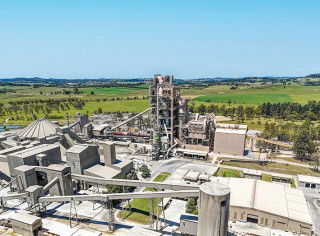The possible takeover of Holcim Lanka Ltd by China Resources Cement Holdings Ltd, a subsidiary of the state-owned China Resources Group, is expected to cause tension with India as the world's largest cement-producing country extends its influence on the island.
With strong current positions in the Colombo and Hambantota harbours, this deal would also give China a presence in Galle and Trincomalee in addition to consolidating its presence in Colombo. Holcim presently owns the Ceylon Ambuja Terminal in Galle, the Lafarge Marine Terminal in Colombo and a yet to be commissioned packing plant in the port of Trincomalee.
The government has been considering renegotiation of the agreement to lease 5141 acres of quarry land in Aruwakkalu, Puttalam, for 50 years, signed in 1993 with Holcim. Following an investment of US$26m and a 12-year tax holiday, the Swiss cement major earned approximately LKR48bn (US$329m) from the extraction of limestone with Sri Lanka receiving rental and royalty payments.
The Ministry of Industry and Trade warned Holcim, saying it “cannot transfer or sublet the premises without the consent of the Cement Corporation” as per Section 4(b) of the agreement. It is rumoured that Holcim has not disclosed this stipulation to potential buyers.
Controversy grows with the bid from state-owned China Resources Cement Holdings, as it is said to be unusually high. This has raised speculation that the deal is not purely business motivated and that the Chinese government's geopolitical interests are taking the lead.
The ties between China and Sri Lanka’s previous government are known to have upset India. The new government has attempted to distance itself from China, but developments in Europe, including Brexit, have seen the government turn to Asia for financial boosts. They have forced Sri Lanka to repair relations with the country, whilst seeking to placate India with the Economic and Technology Cooperation Agreement (ECTA) – trying to maintain good relations with the two regional powers whilst not appearing to favour either. Analysts have speculated that should the Holcim/China Resources deal go through, Sri Lanka may lose the support of India at a great cost. In addition, Sri Lanka still struggles to build relations with the international community following diplomatic faux pas’ from the previous regime.
